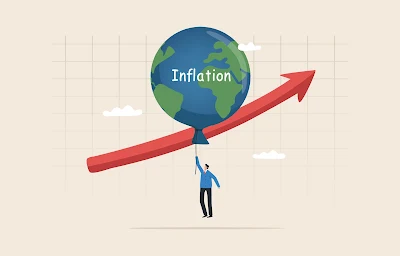The Impact of the World Economy on Banking
The world economy plays a crucial role in shaping the financial landscape, particularly in the banking sector, interest rates, and inflation. Understanding the intricate relationship between these factors is essential for individuals, businesses, and policymakers alike. In this article, we will explore how the world economy influences banking, interest rates, and inflation, shedding light on the key mechanisms at play. The Influence of the World Economy on Banking: The world economy has a profound impact on the banking sector, as it affects the overall financial stability and performance of banks. In times of global economic growth, banks tend to experience increased lending opportunities, leading to higher profits. Conversely, during economic downturns, banks face higher risks of loan defaults and reduced profitability. Moreover, the interconnectedness of the global financial system means that events in one country can quickly ripple through to others. For instance, a financial crisis in one region can trigger a chain reaction, causing instability in banking systems worldwide. This highlights the importance of monitoring global economic trends and implementing robust risk management practices within the banking industry. Interest Rates and the World Economy: Interest rates are a vital tool used by central banks to manage economic conditions. The world economy significantly influences interest rates, as global factors impact the supply and demand for money. When the global economy is thriving, central banks may raise interest rates to curb inflationary pressures and prevent excessive borrowing. Conversely, during economic downturns, central banks may lower interest rates to stimulate borrowing and investment, thereby boosting economic activity. Furthermore, the world economy's impact on interest rates extends beyond domestic policies. In a globalized financial system, changes in interest rates by major central banks, such as the Federal Reserve in the United States, can have far-reaching effects on interest rates worldwide. This interconnectedness underscores the need for coordination and cooperation among central banks to maintain stability in the global financial system. Inflation and the World Economy: Inflation, the sustained increase in the general price level of goods and services, is influenced by various factors, including the world economy. Global economic conditions can affect inflation through several channels. For instance, changes in commodity prices, such as oil or food, can have a significant impact on inflation rates worldwide. Additionally, exchange rate fluctuations resulting from global economic events can influence import and export prices, thereby affecting domestic inflation. For example, a depreciation in a country's currency can lead to higher import prices, potentially fueling inflationary pressures. Furthermore, the world economy's impact on inflation is closely tied to monetary policy. Central banks often use inflation targets as a guide for setting interest rates. Therefore, global economic conditions, such as rising commodity prices or increased demand, can influence central banks' decisions regarding interest rates, subsequently impacting inflation rates. Conclusion: The world economy exerts a profound influence on banking, interest rates, and inflation. The interconnectedness of financial systems across countries means that events in one region can have far-reaching consequences. Understanding these dynamics is crucial for individuals, businesses, and policymakers to navigate the complex world of finance. By monitoring global economic trends and implementing appropriate measures, stakeholders can better adapt to the ever-changing global financial landscape.


